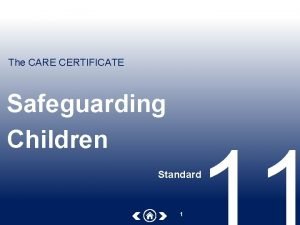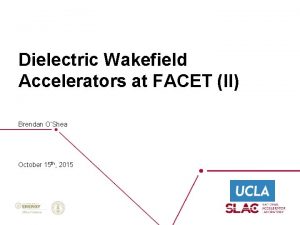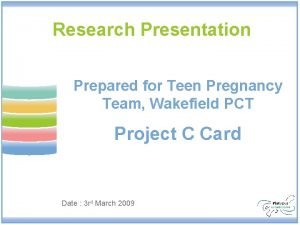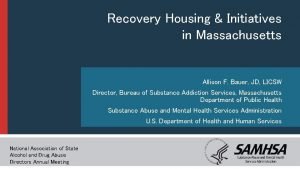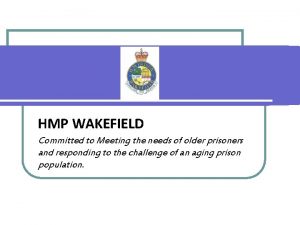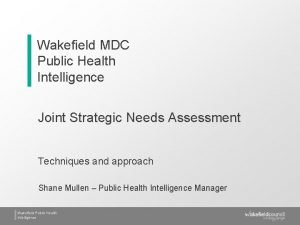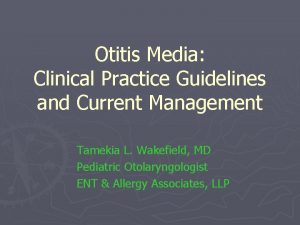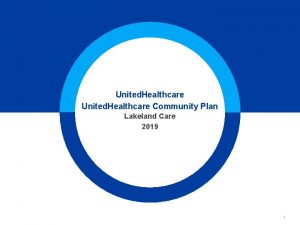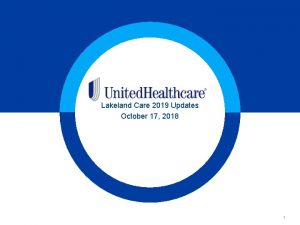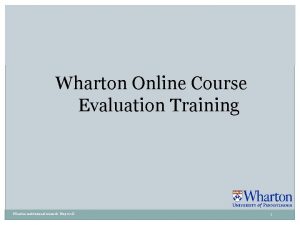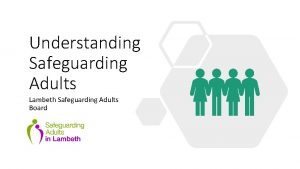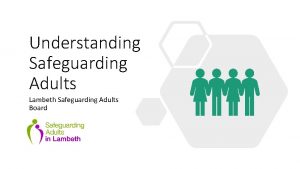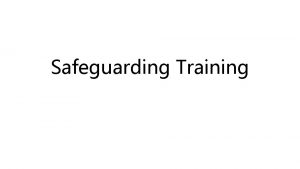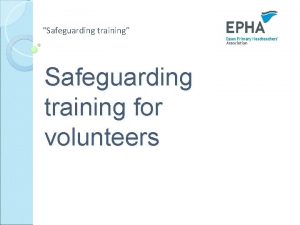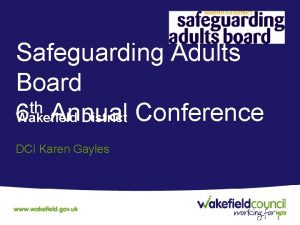THE CARE ACT SAFEGUARDING Mick Wharton Wakefield District






















- Slides: 22

THE CARE ACT & SAFEGUARDING Mick Wharton Wakefield & District Safeguarding Adults Board Business Manager

NEW STATUTORY DUTIES • • • Sets out Local Authority responsibilities for adult safeguarding in primary legislation. Responsibility to ensure enquiries are made where safeguarding criteria is met. Safeguarding Adult Boards become statutory. Requirement to conduct Safeguarding Adult Reviews. Information sharing duties. Care providers Duty of Candour.

DUTY TO MAKE ENQUIRIES • • • The Local Authority must make enquiries or ensure others do so, if it reasonably suspects an adult who has care and support needs is being abused or neglected and is unable to protect themselves against that abuse or neglect or the risk of it, because of those needs. (Section 42 eligibility criteria - Guidance 2014, Ch. 14). Any enquiry should establish whether any action needs to be taken to prevent or stop abuse and neglect and by whom. Risk Management action or formal Section 42 Enquiry.

DUTY TO MAKE ENQUIRIES • • • The first responsibility to act must be with the employing organisation (unless conflicted) as provider of the service. The employer should investigate any concern, provide any additional support the adult may need, unless there is compelling reason why it is inappropriate or unsafe to do this. For example a serious conflict of interest (allegations against owners) or a matter that requires investigation by the Police.

TYPES OF ABUSE • • Physical Sexual Psychological Neglect Discrimination Organisational Financial Self-Neglect

OTHER TYPES OF ABUSE The Act acknowledges the wider aspects of adult safeguarding and makes links with: • Domestic Abuse • Modern Day Slavery (Human Trafficking) • Forced Marriage • Honour Based Violence • Female Genital Mutilation • (Section 42 must be met for these to become adult safeguarding issues)

GREAT EMPHASIS ON OUTCOMES • • • Making Safeguarding Personal. No decision about me without me. Adult, families, and carers working together with agencies to help support people and make informed choices. A persons capacity to make decisions is determined by the Mental Capacity Act. In cases involving Service Provider staff, consent is overridden because of the potential risk to other service users.

ADVOCACY • • • The Local Authority must arrange for an independent advocate to represent and support where the adult has substantial difficulty with the process and no other appropriate individual to assist. Family members or people with the consent of the person subject to any enquiry can act as advocates. If the LA arrange for an advocate because no one else is able to fulfil this role, the advocate must be qualified for the role.

STATUTORY BOARDS – 3 FUNCTIONS Local Safeguarding Adult Board’s (LSAB) have three statutory members, LA, Police and CCG and are required to have a chair who can act with independence and must: • Publish a Strategic Plan developed with the community and Health Watch. • Publish an Annual Report. • Conduct any Safeguarding Adult Reviews. • Wakefield has a fully Independent Chair funded by the board statutory partners.

A NEW ROLE • • Designated Safeguarding Adults Manager (DASM). Required by three statutory Board members – the Local Authority, Police and Clinical Commissioning Group. In practice most Board partners are likely to already have someone undertake this role, as most have professional safeguarding leads in their organisations. Responsible for the management and oversight of complex cases.

DASM • • Co-ordination role where concerns raised about a person, whether an employee, volunteer or student, paid or unpaid. Provides advice and guidance within own organisation and liaises with other agencies as necessary. Ensures cases are dealt with promptly under a consistent thorough but fair process with a clear audit trail in accordance with confidentiality requirements. (People’s employment at risk) Ensures service providers make necessary referrals to DBS and professional bodies when appropriate.

SAFEGUARDING ADULT REVIEWS • • • Sets out the grounds for a review. Previously known as Serious Case Reviews. Gives Boards flexibility to choose a proportionate methodology. Purpose of a Safeguarding Adult Review (SAR) must be to learn lessons, improve practice and interagency work. Boards have the power to require information from relevant agencies relevant to the SAR’s function.

DUTY OF CANDOUR • • Section 81 of the Care Act sets out the statutory duty of candour on providers of health care and adult social care services registered with the CQC. Intention being to ensure that honesty and transparency are the norm in every organisation overseen by the CQC, The Duty of Candour is one of the new Fundamental Standards (Mums test) on which the Care Quality Commission (CQC) assess Service Providers. Alleged breaches of the duty to be reported to Commissioners and the CQC.

New Safeguarding Adults Procedures • • Any person may raise a concern with the Local Authority where they are concerned that an adult with care and support needs is experiencing, or at risk of abuse and neglect. The Local Authority will undertake Initial Enquiries to determine if the concern meets the Section 42 safeguarding eligibility criteria and if so, how to respond. A response will include working to understand the adult’s desired outcomes and agreeing with the adult how their concerns will be acted upon. (Capacity to make decisions and reasons to override consent may be factors) The Local Authority will need to decide what the most proportionate response to the concerns are.

Safeguarding Procedures • • This response may include either: Risk Management Response, the term given to a range of actions that may be required to safeguard the adult from the risk of abuse and neglect. A Formal Enquiry to establish the facts, and gather evidence to support a safeguarding plan. This will involve a Strategy meeting, an investigation either by employer, Police, Social Care or combination of these and a Case Conference meeting to determine an outcome on the civil standard of balance of probabilities. Risk assessment, safeguarding planning, and the provision of support to enable the adult at risk to be in control of decisions about their own life, are core elements throughout.

Duty to Make Enquiries (Procedure Extract)

Initial Enquiry (Procedure Extract)

Procedures Flowchart

Safeguarding Performance Information

Safeguarding Performance Information 2014 / 15 Alerts Strategy Meeting Case Conference 2523 305 (12. 1%) 140 (5. 6%) Case Conference Abuse Substantiated 90 (64. 3%)

Safeguarding Performance Information Outcomes Survey Nearly half of everyone subject to the adult safeguarding procedures are unable to complete a survey due to: • Lack of capacity • Person dies • Person chooses not to take part Therefore relatives are asked to complete surveys on behalf of their loved ones and this can affect the survey returns if they complete the survey from their own point of view. (This will be addressed in 2015/16 under the new Making Safeguarding Personal process).

Safeguarding Outcomes • • 23 completed surveys 91. 3% satisfied / very satisfied 68. 2% felt safe whilst procedures ongoing 87% said their views were fully recognised 82. 6% felt fully included 60% felt safer after procedures (skewed by relative responses) 89. 5% felt it had made a difference to their lives
 Safeguarding children care certificate
Safeguarding children care certificate Professor mick waters
Professor mick waters Mick storr
Mick storr Demi moore, culver city, california, 1991
Demi moore, culver city, california, 1991 Sonny bolger
Sonny bolger Mick gordon gdc
Mick gordon gdc Primary, secondary, tertiary care
Primary, secondary, tertiary care Wound type
Wound type Wakefield middle school
Wakefield middle school Wakefield youth offending team
Wakefield youth offending team Plasma wakefield acceleration
Plasma wakefield acceleration Brendan white wakefield
Brendan white wakefield C card wakefield
C card wakefield Kelly house wakefield ma
Kelly house wakefield ma Hmp wakefield
Hmp wakefield Wakefield public health
Wakefield public health Dr tamekia wakefield
Dr tamekia wakefield Macbeth act 3-5 summary
Macbeth act 3-5 summary Group number on united healthcare card
Group number on united healthcare card Lakeland care district
Lakeland care district District forum in consumer protection act
District forum in consumer protection act Wharton capital iq
Wharton capital iq Wharton information session
Wharton information session
